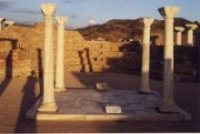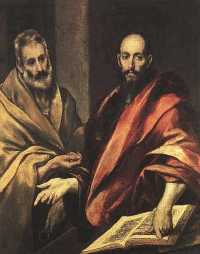"The Darkness Is Passing Away" -- 1 John 2:3-11
 Wednesday, November 25, 2009 at 09:47AM
Wednesday, November 25, 2009 at 09:47AM 
The Third in a Series of Sermons on the Epistles of John
The contrast between Christianity and false religion is as apparent as the contrast between light and darkness. John the Apostle, must deal with certain men who have departed from the faith, and who were now denying that Jesus is God manifest in the flesh. To expose their errors, John uses a simple contrast. God is light. Darkness cannot exist in his presence, because light casts out darkness. Since Jesus Christ is God manifest in the flesh, Jesus is that light which has come into the world. That light which gives life, enables God’s people to walk in the light, even as Jesus is the manifestation of the light. And since light casts out darkness, so too Christ’s coming in the flesh means that wherever the word of life is proclaimed, darkness passes away.
As we continue our series on the Epistles of John, we are now making our way through the second chapter of John’s first epistle. In this section of John’s letter (vv. 1:5-2:29), John describes four ways in which Christians demonstrate that they are walking in the light. The first of these four conditions is the necessity of repenting of our sin. We discussed this last time as we made our way through 1 John 1:5-2:2. The second condition mentioned by John–that Christians must be obedient to God’s commandments–is found in verses 2:3-11. This is our topic in this sermon. The third condition is spelled out in verses 12-17. John says that Christians must reject all appearance of worldliness, which refers to both the lusts of the flesh and the desires of the eyes. The fourth condition–that we must hold fast to the truth in the presence of antichrists–is spelled out in the balance of the chapter (vv. 18-29). According to John, these things are characteristic of all those who live in the light of the word manifest in the flesh.
Since I spent a fair bit of time on background material for the epistles of John in the previous two sermons–in which I explain why I am approaching these epistles in the way that I am–I would ask you to listen to them, if you haven’t yet heard them. Throughout these epistles, John (the apostle) is dealing an early form of Gnosticism, in which it is argued that a dualism exists between spirit (good) and matter (which is evil). In this dualistic scheme of things, the Christian doctrine of the incarnation of Jesus Christ is an impossibility because God (pure spirit) could not in any sense be manifest in human flesh (because flesh is material, and therefore evil). This is why John opens this epistle with the emphatic declaration that Jesus is God manifest in the flesh. John has seen Jesus, heard Jesus, and even touched Jesus. The good news (of the gospel) is that Jesus has come as a flesh and blood Savior.
To read the rest of this sermon, Click here











